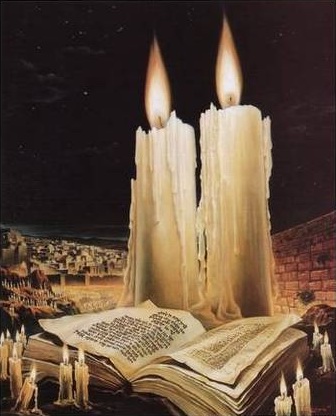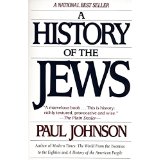KINDLE THE SABBATH LIGHTS
From the heart of the Creator
Who shows His love for humankind
by preparing a universe–
a perfect environment
to sustain all forms of life;
What better message
and best proof of Divine LOVE
could humanity expect
than His Created world which,
in His Divine providence,
He designed not only as ‘good’
but ‘very good’!
The stage was set
before the the first of humanity
entered the scene.
What an all wise Creator
is our God of Love,
YHWH,
Blessed be His Holy Name!
With each setting of the life-nurturing
and light-giving sun,
the Master Designer of the universe
reminds us that a new day begins,
not facing another day to labor,
but winding down to a good night’s rest.
And at the end of our six day work-week,
rises the Queen of Days
just as His sun sinks in the horizon
from our view,
signaling it is time
to kindle the Sabbath lights!
And whether alone
or together with family or friends,
we reflect on the
Wisdom of Divine Providence
that fill the days of our lives
with messages of love
from the very heart of our great God
YHWH,
Praised be His Holy Name.
And as if all that the Creator had prepared
for humankind were not enough,
by His grace
and because of His love for us,
created beings He made in His image,
He did not leave us ignorant of
His Will,
His Wishes
and His Way —
designed for humanity
to live with one another,
connected always to Him
through His Tree of Life,
His Revelation in His TORAH,
which He gifted to humanity
through His chosen people,
that they might live in peace and harmony
in the Land of Promise,
where their way of life
would be visible to the nations,
so that Gentiles in all nations would be drawn
to His Way,
and to HIM
Who expressed His Will and Wishes
for all.
Truly, our God YHWH,
has shown His great love for us,
by blessing us with His TORAH.
Praised be His Holy Name!
Psalm 145
A song of Praise, of David
[revised and combined from ESV and AST]
I will exalt You, my God the King,
and I will bless Your Name forever and ever.
Every day I will bless You
and praise Your Name forever and ever.
Great is YHWH, and greatly to be praised,
and His greatness is unsearchable.
Each generation will praise Your deeds to the next
and of Your mighty deeds they will tell.
On the glorious splendor of Your majesty,
and on Your wondrous deeds,
I will meditate.
And of the might of Your awesome deeds
they will speak,
and Your greatness I shall relate.
They shall pour forth
the fame of Your abundant goodness
and shall sing aloud of Your righteousness.
YHWH is gracious and merciful,
slow to anger
and abounding in steadfast love.
YHWH is good to all,
and His mercies are all on His works.
All Your works shall thank You,
O YHWH,
and your devout ones will bless You!
They shall speak of the glory of Your kingdom
and tell of Your power,
to make known to the children of man
Your mighty deeds,
and the glorious splendor of Your kingdom.
Your Kingdom
is an everlasting kingdom
and Your dominion endures
throughout all generations.
[YHWH is faithful in all His words
and kind in all His works.]
YHWH upholds all who are falling
and raises up all who are bowed down.
The eyes of all look to You,
and You give them their food in due season.
You open Your hand,
You satisfy the desire of every living thing.
YHWH is righteous in all His ways
and kind in all His works.
YHWH is near to all who call on Him,
to all who call on Him in Truth.
He fulfills the desire of those who fear Him;
He also hears their cry and saves them.
YHWH protects all who love Him,
but all the wicked He will destroy.
May my mouth declare
the praise of YHWH,
and may all flesh bless
His Holy Name
forever and ever.
All ye Gentiles of the nations,
all Truth-seekers
and
true seekers of the One True God. . .
Come sip the wine, come taste the bread,
Come share the joy of Sabbath celebration!
We seek YHWH’s blessings upon–
our food,
our fellowship,
and our family.

Image from ovalezoval.blogspot.com
“Family is not always blood.
It’s the people in your life
who want you in theirs.
the ones who accept you for who you are.
The ones who would do anything
to see you smile
and love you no matter what.”
[Name your family members:
parents, siblings, spouses, children, extended family.]
May their names,
and all our names,
be written in the Book of Life!
May the breath of life
from the Source of Life
sustain and nurture our life
day by day, week by week,
from Sabbath to Sabbath,
until each of us have fulfilled our function
on this earth, in this life.
When we know Him,
YHWH,
as the One True God,
then we make His Name known
to those who, like us,
seek Him with all their heart
and all their mind
and all their substance.
They will find Him,
just as we have found Him.
Hear O Yisrael,
hear O Gentiles of the Nations:
YHWH is LORD,
YHWH is One.
YHWH is the Creator,
the Revelator on Sinai,
the God of Israel,
the God of Sinaites,
God of the Nations!
And whether anyone acknowledges Him or not,
YHWH is GOD!
Sabbath Meal
TORAH STUDY
HAVDALAH
[Note: Sonnet 43 was written by Elizabeth Barrett Browning;
we are borrowing her poetry to express our love for YHWH our God,
but with revisions to suit a Sinaite’s creed]
How Do I Love Thee?
How do I love Thee?
Let me count the ways.
I love Thee
to the depth and breadth and height
my soul can reach,
when feeling out of sight,
for the ends of being and ideal grace.
I love Thee
to the level of every day’s most quiet need,
by sun and candlelight.
I love Thee freely,
as men strive for right;
I love Thee purely,
as they turn [to] praise.
I love Thee
with the passion put to use
in my old griefs,
and with my childhood’s faith.
[I love Thee
with a love I seemed to [never have lost
despite the passing of time];
I love Thee
with the breath, smiles, tears,
of all my life;
[And if Thou,
YHWH
so choose to grant me my eternal rest],
I shall but love Thee
[even to my end in this life.]
SHABBAT SHALOM!
On behalf of —
Sinai6000 Core Community
based in Baguio City, Philippines —










































